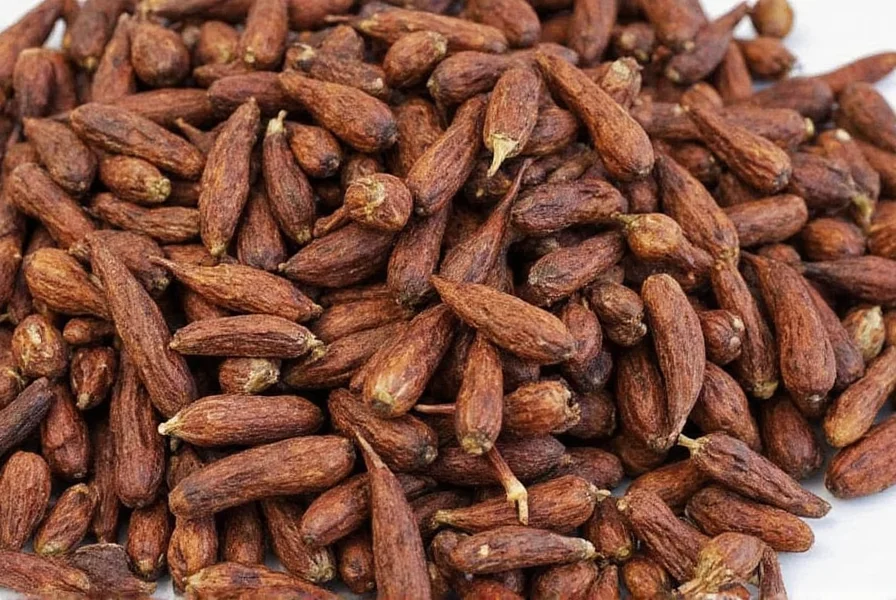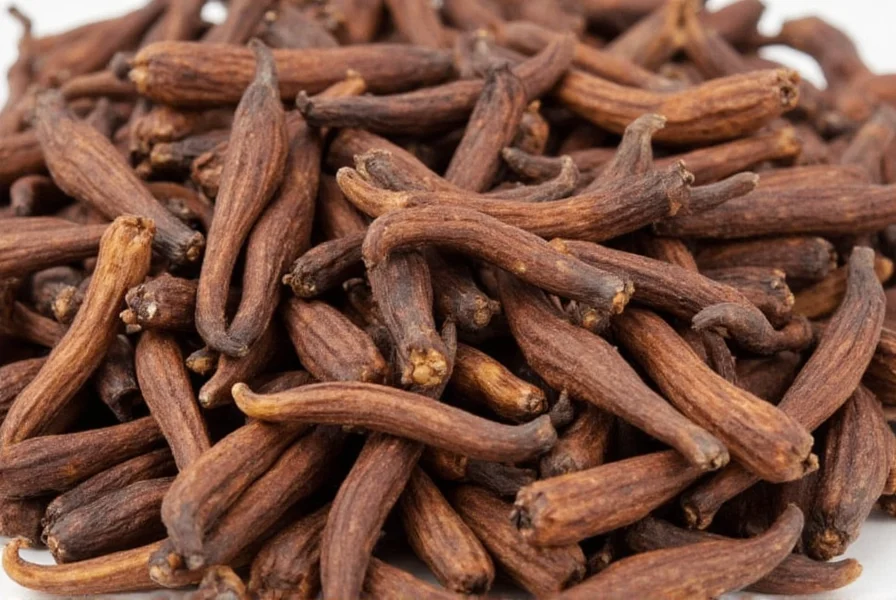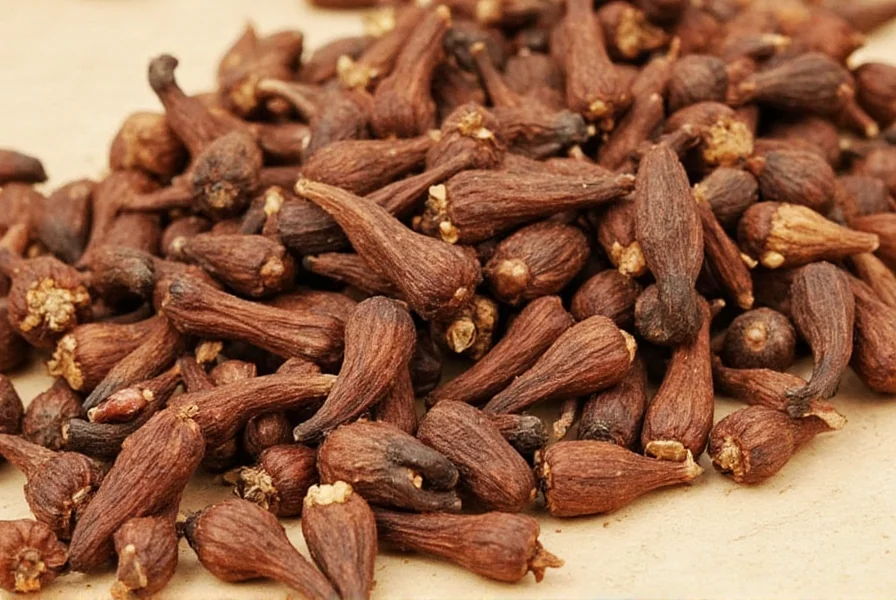Fresh cloves represent a culinary treasure often overlooked in favor of their dried counterparts. These aromatic buds come straight from the clove tree (Syzygium aromaticum) before undergoing the drying process that transforms them into the familiar spice found in most kitchens. Understanding fresh cloves requires examining their unique characteristics, proper handling methods, and distinctive culinary applications.
What Exactly Are Fresh Cloves?
Fresh cloves differ significantly from the dried spice most consumers recognize. While dried cloves are essentially the same flower buds after sun-drying, fresh cloves retain their original moisture content and vibrant color. The fresh variety appears plump with a bright reddish-pink hue rather than the dark brown of dried cloves. This moisture preservation maintains higher concentrations of eugenol, the primary compound responsible for cloves' distinctive flavor and aroma.
When evaluating how to use fresh cloves in cooking, chefs appreciate their more nuanced flavor profile. Fresh cloves offer a brighter, less intense heat with subtle floral notes that can transform certain dishes. Their texture also differs considerably—they're softer and can be sliced or minced more easily than their rock-hard dried counterparts.

Fresh Cloves vs Dried Cloves: Key Differences
| Characteristic | Fresh Cloves | Dried Cloves |
|---|---|---|
| Moisture Content | 70-80% | 10-12% |
| Flavor Intensity | Milder, more floral | Stronger, more concentrated |
| Shelf Life | 1-2 weeks refrigerated | 2-3 years in airtight container |
| Preparation | Slice or mince easily | Requires grinding |
| Volatile Oil Content | Higher (up to 20% eugenol) | Reduced (15-17% eugenol) |
Selecting Quality Fresh Cloves
Finding fresh cloves requires knowing what to look for, as they're less commonly available than dried varieties. When searching where to buy fresh cloves, specialty markets, Asian grocery stores, or farmers' markets represent your best options. Select buds that feel firm yet slightly yielding to gentle pressure, with vibrant color ranging from light pink to deep crimson. Avoid cloves with brown spots, soft areas, or signs of mold.
The stems provide another quality indicator—fresh cloves still attached to their stems typically indicate recent harvesting. When properly selected, fresh cloves should emit a strong, sweet-spicy aroma when gently squeezed. This immediate sensory feedback helps determine freshness, unlike dried cloves where aroma assessment is less reliable.
Optimal Storage Methods for Maximum Freshness
Understanding how long do fresh cloves last begins with proper storage techniques. Unlike dried cloves that thrive in dry, dark conditions, fresh cloves require moisture control. The refrigerator provides the ideal environment, but specific methods maximize their shelf life:
- Short-term storage (1-2 weeks): Place cloves in a perforated plastic bag with a slightly damp paper towel in the vegetable crisper
- Medium-term storage (3-4 weeks): Submerge cloves in olive oil in an airtight container refrigerated
- Long-term storage (6+ months): Freeze whole cloves on a baking sheet, then transfer to freezer bags
Regular inspection prevents spoilage—discard any cloves showing discoloration or soft spots. Properly stored fresh cloves maintain their characteristic aroma and flavor profile significantly longer than when left at room temperature.
Culinary Applications and Cooking Techniques
Fresh cloves shine in specific culinary applications where their nuanced flavor can enhance dishes without overwhelming them. When determining how to use fresh cloves in cooking, consider these techniques:
For savory dishes, slice fresh cloves thinly and add them early in the cooking process to mellow their intensity. They work particularly well in braises, stews, and rice dishes where their floral notes can permeate the entire dish. In fruit-based preparations like chutneys or compotes, fresh cloves provide a delicate spice note that complements rather than dominates.
Beverage applications represent another excellent use case. Mince fresh cloves finely and add them to mulled wines, ciders, or even cold-brew coffee for a subtle aromatic quality. The higher moisture content allows fresh cloves to infuse liquids more quickly than dried varieties.

Nutritional Profile and Potential Health Applications
Fresh cloves contain a rich array of compounds with potential health benefits. Their nutritional value includes significant amounts of manganese, vitamin K, and dietary fiber. The higher moisture content preserves more of the volatile oils, particularly eugenol, which research suggests may have antioxidant and anti-inflammatory properties.
Traditional applications of fresh cloves for toothache relief involve placing a whole clove directly on the affected area. The eugenol acts as a natural anesthetic and antimicrobial agent. While scientific evidence remains limited, many dental professionals acknowledge cloves' historical use in oral care.
It's important to note that while fresh cloves offer potential health benefits, they should complement rather than replace professional medical treatment. Consuming cloves in culinary amounts is generally safe, but concentrated clove oil requires caution due to its potency.
Substitution Guidelines and Equivalencies
Understanding can you substitute fresh cloves for ground cloves requires knowledge of their relative strengths. Due to moisture content differences, the substitution ratio isn't 1:1. As a general guideline:
- 1 teaspoon ground cloves = 1 tablespoon minced fresh cloves
- 1 whole dried clove = 3-4 small pieces of fresh clove
When substituting, add fresh cloves earlier in the cooking process to allow their flavors to develop fully. Their milder profile means you might need slightly more than dried cloves to achieve comparable flavor intensity. Always taste and adjust as you cook, as fresh cloves' flavor evolves differently during cooking compared to dried varieties.
Frequently Asked Questions
How can I tell if fresh cloves have gone bad?
Fresh cloves that have spoiled will show visible signs including dark brown or black discoloration, soft or mushy texture, and an off-putting sour smell. Properly stored fresh cloves should maintain firmness and their characteristic spicy aroma. When in doubt, discard cloves that don't meet these freshness criteria.
Can I grow my own fresh cloves at home?
Growing fresh cloves at home is challenging outside tropical climates. Clove trees require consistent temperatures between 70-95°F (21-35°C), high humidity, and well-draining acidic soil. They typically take 6-8 years to produce flower buds. In non-tropical regions, growing cloves indoors as a houseplant is possible but unlikely to yield harvestable buds due to space and climate limitations.
What dishes work best with fresh cloves instead of dried?
Fresh cloves excel in dishes where a more subtle, floral spice note is desired. They work particularly well in fruit-based preparations like apple or pear compotes, light meat marinades, and delicate rice dishes. Fresh cloves also shine in beverages like mulled wine or spiced teas where their nuanced flavor can infuse without becoming overpowering. Avoid using fresh cloves in recipes requiring long cooking times unless you want their flavor to mellow significantly.
Are fresh cloves more expensive than dried cloves?
Yes, fresh cloves typically cost 3-5 times more than dried cloves due to their limited availability, shorter shelf life, and higher transportation costs. A small bunch of fresh cloves (about 20 buds) might cost $3-5, while an equivalent amount in dried form would cost less than $1. The price difference reflects the specialized handling required to maintain freshness from harvest to consumer.
Can I dry fresh cloves at home?
Yes, you can dry fresh cloves at home by spreading them in a single layer on a mesh screen in a warm, dark, well-ventilated area. The drying process takes 1-2 weeks until cloves become hard and brittle. Properly dried cloves should snap when bent. Home-dried cloves won't match commercially dried quality but will retain more flavor than store-bought dried cloves due to shorter processing time.











 浙公网安备
33010002000092号
浙公网安备
33010002000092号 浙B2-20120091-4
浙B2-20120091-4